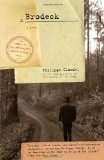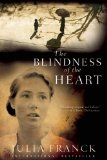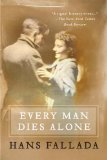Summary | Excerpt | Reading Guide | Reviews | Beyond the book | Read-Alikes | Genres & Themes | Author Bio

A Novel
by Phillipe ClaudelSet in an unnamed time and place, Brodeck blends the familiar and unfamiliar, myth and history into a work of extraordinary power and resonance. Readers of J. M. Coetzee's Disgrace, Bernhard Schlink's The Reader and Kafka will be captivated by Brodeck.
Forced into a brutal concentration camp during a great war, Brodeck returns to his village at the war’s end and takes up his old job of writing reports for a governmental bureau. One day a stranger comes to live in the village. His odd manner and habits arouse suspicions: His speech is formal, he takes long, solitary walks, and although he is unfailingly friendly and polite, he reveals nothing about himself. When the stranger produces drawings of the village and its inhabitants that are both unflattering and insightful, the villagers murder him. The authorities who witnessed the killing tell Brodeck to write a report that is essentially a whitewash of the incident.
As Brodeck writes the official account, he sets down his version of the truth in a separate, parallel narrative. In measured, evocative prose, he weaves into the story of the stranger his own painful history and the dark secrets the villagers have fiercely kept hidden.
Set in an unnamed time and place, Brodeck blends the familiar and unfamiliar, myth and history into a work of extraordinary power and resonance. Readers of J. M. Coetzee’s Disgrace, Bernhard Schlink’s The Reader and Kafka will be captivated by Brodeck.
I
I'm Brodeck and I had nothing to do with it.
I insist on that. I want everyone to know.
I had no part in it, and once I learned what had happened, I would have preferred never to mention it again, I would have liked to bind my memory fast and keep it that way, as subdued and still as a weasel in an iron trap.
But the others forced me. "You know how to write," they said. "You've been to the University." I replied that my studies hadn't amounted to much--I hadn't even finished my courses and didn't remember much about them. They didn't want to hear it. "You know how to write, you know about words and how to use them, you know how they can say things. That's what we need. We can't do it ourselves. We'd get into a muddle, but you, you'll say it right, and people will believe you. Besides, you've got the typewriter."
It's very old, the typewriter. Several of its keys are broken, and I have nothing to repair it with. It's capricious. It's worn out. Sometimes, for no apparent ...
In the final passage of Steinbeck's The Grapes of Wrath, a man narrowly escapes starvation by feeding at the breast of a woman whose infant child has died. It is a punishingly beautiful combination of despair and hope with few peers in contemporary fiction. Brodeck, the prescient new novel by French author Phillipe Claudel, culminates in an equally moving but far darker scene that will haunt readers even as the book enchants them... A deep and wide ocean of a story, with transcendent crests and despairing troughs. Get up your courage before you set sail...continued
Full Review
(779 words)
This review is available to non-members for a limited time. For full access,
become a member today.
(Reviewed by Micah Gell-Redman).
 While Philppe Claudel makes no explicit references to any historical event, a number of them clearly influenced his novel. A particularly poignant example comes when Brodeck is forced to flee the city where he attends university because nationalist thugs respond to a popular protest by smashing store fronts and savagely beating anyone who looks like they don't belong. There is an obvious parallel to the infamous events of Kristallnacht, a touchstone in the progression toward the Nazi murder of the Jews.
While Philppe Claudel makes no explicit references to any historical event, a number of them clearly influenced his novel. A particularly poignant example comes when Brodeck is forced to flee the city where he attends university because nationalist thugs respond to a popular protest by smashing store fronts and savagely beating anyone who looks like they don't belong. There is an obvious parallel to the infamous events of Kristallnacht, a touchstone in the progression toward the Nazi murder of the Jews.
When Hitler occupied the chancellorship of Germany in 1933, he did so as head of a National Socialist party that shared anti-communist and anti-Semitic rhetoric with a number of other political movements in Europe. The difference between ...
This "beyond the book" feature is available to non-members for a limited time. Join today for full access.

If you liked Brodeck, try these:

by Julia Franck
Published 2011
Winner of the German Book Prize, The Blindness of the Heart is a dark marvel of a novel by one of Europe’s freshest young voices—a family story spanning two world wars and several generations in a German family.

by Hans Fallada
Published 2010
This never-before-translated masterpiece—by a heroic best-selling writer who saw his life crumble under the Nazis— is based on a true story. It presents a richly detailed portrait of life in Berlin under the Nazis and tells the sweeping saga of one working-class couple who decides to take a stand when their only son is killed at the front...




I always find it more difficult to say the things I mean than the things I don't.
Click Here to find out who said this, as well as discovering other famous literary quotes!